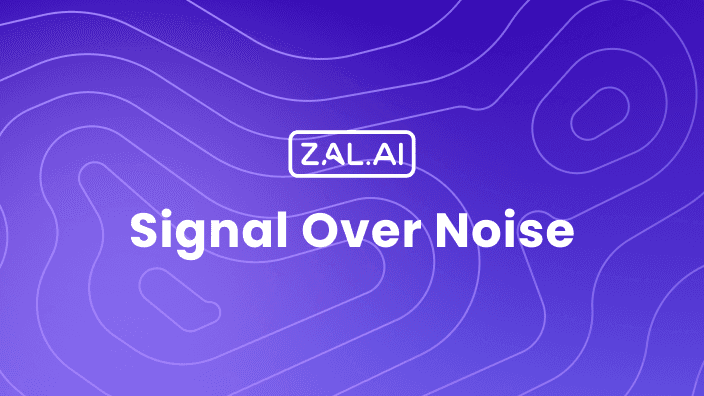Perfecting Practice
Learning content is more accessible than ever. Why are practice environments lagging behind?

Kayvon Touran & Kathy Hanson
on
Mar 10, 2024
Think back to a time when you faced a significant challenge at your work. Maybe you were in over your head managing a high-visibility project, or struggling to mediate a relationship between two of your direct reports. Perhaps you were trying to achieve company-wide adoption of a new policy, or about to close a large deal with a potential client who suddenly got cold feet.
What if you could run those situations back and try again? And again, and again?
Knowing that our most profound professional learning experiences tend to come from our mistakes, think of the power of making those mistakes in a controlled environment before they really happen!
Learning content is more accessible than ever (endless libraries of online courses, AI tools like ChatGPT and Perplexity, and platforms like Youtube and TikTok). But employees are rarely provided with opportunities to practice their new skills.
The next phase of innovation in corporate L&D? On-demand, hyper-realistic practice environments.
Let’s dive in!
The Point of Practice
Kathy Hanson, a learning expert who has led organizational training efforts in C-level positions at multiple national government agencies, emphasized the value of practice when telling me about her work in Zion National Park for the National Park Service.
“Zion National Park is a stunning natural resource with some very hazardous hiking areas. Our capable park rangers frequently respond to serious accidents and occasional fatalities in the park’s rugged, high-altitude terrain.. Our park rangers were constantly out there running drills, rappelling down the cliffs and simulating rescue operations in every conceivable weather condition. If you’re a visitor who finds yourself in trouble and in need of immediate rescue, you don’t want the ranger who watched a video or read a book about how to perform these difficult and dangerous maneuvers. You want the ranger who has been running rescue drills all season.”
This emphasis on practice, Kathy says, extends into corporate training.
“You have to simulate the actual environment you’re working in to build up the muscle memory to really exercise a new skill. And you need a continuous improvement feedback loop, and then you need to reapply those skills with your adjustments. The same way this works for park rangers with their physical skills, it works for managers with their mental skills.”
Practice allows professionals to reinforce their theoretical knowledge and gain hands-on experience. In turn, they build confidence in applying these new skills, and can identify areas for improvement and seek further learning opportunities
Some teams engage in collaborative role-playing exercises that draw on actual real-life experiences for training scenarios. More experienced colleagues observe and deliver real-time feedback. This type of practice is extremely valuable but also requires time and effort to initiate.
Mentor-guided on-the-job training is another way for employees to sharpen their new skills. Again, the real value here lies in the real-time feedback provided by a more experienced colleague.
Simulation tools are effective for training, but can be difficult to configure. Realistic VR and AR tools like Talespin or Mursion are impressive and very lifelike, but often require unique hardware. Some employers use platforms like CapsimInbox to guide employees through interactive, story-driven skills assessments. These bring the on-demand element, but are limited in the scope of skills that they measure and can’t easily be personalized to the individual user.
So what would an ideal practice environment look like for today’s corporate learner?
It would incorporate hyper-specific information about the learner’s working environment, which would include big-picture industry trends, their specific company’s goals and values, information about their team and individual role, and even down to their current projects.
An ideal practice environment would also deliver instant feedback from a seasoned expert, and it would be accessible on-demand, whenever a learner felt like cutting their teeth on any of the myriad skills they are working on at a given point in time.
Practice Arenas: The Future of On-Demand Skill Building
Building on the same principles, Zal has created Smart Assessments, which use AI as a mouthpiece and cutting-edge learning science as the brain. Practice Arenas provide a dynamic and interactive environment where employees can practice new skills on-demand. This addresses a critical need in professional development—bridging the gap between theoretical learning and practical application.
Imagine a space where employees can engage in realistic simulations tailored to their specific roles and challenges. Practice Arenas utilize AI to create personalized scenarios that adapt in real-time to the user’s performance. Whether it’s honing negotiation skills, mastering a new software tool, or improving customer service techniques, these arenas offer a safe and immersive environment for continuous practice and improvement.
“What sets this idea of a practice arena apart is its ability to tailor the activity to the individual, so that the simulations address their specific needs, and then to provide instant feedback, which decades of great learning scientists have shown us is so crucial to the learner,” Kathy Hanson says.
“There are so many situations that professionals face that are not only high stakes for the individual, but consequential to the long-term success of the organization (whether they’re behind a reception desk, on the retail floor, bedside in a hospital room, in a board meeting, you name it). Organizations risk a lot when they allow inexperienced individuals who have not had the benefit of practice to learn the hard way by making critical errors. And now they really don’t have to, and that’s a transformational shift in the way we think about on-the-job training.”
How would you incorporate Practice Arenas into your corporate L&D strategy?
Subscribe to our newsletter below to stay updated on our latest insights and innovations in the field of learning and development. Together, we can bridge the skill gaps in your organization and unlock the full potential of your workforce.






